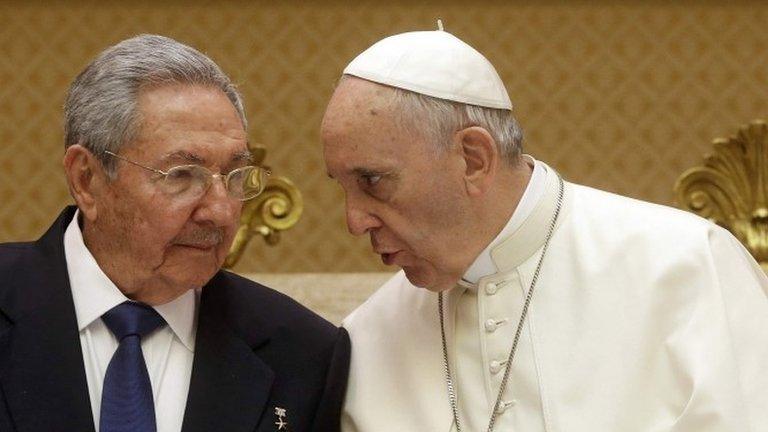Pope may ruffle feathers on US/Cuba trip
- Published
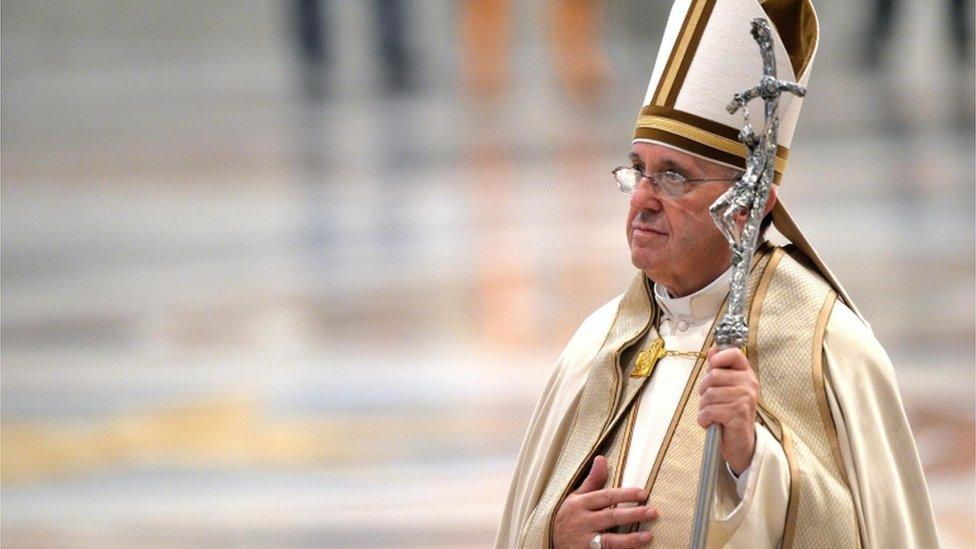
Pope Francis is a "complicated character".
Pope Francis's forthcoming nine-day visit to the US and Cuba, which starts on Saturday, will be his 10th and longest trip abroad yet and, for the 78-year-old, it is likely to be challenging on many levels.
It is the Argentine-born Pope's first trip to the US and, while he has attained popularity ratings there that any politician would envy, his reputation as a Pope for the poor and the vulnerable - and his stance on saving the environment - has ruffled feathers, especially among conservatives.
There is also some nervousness in Washington as to what he may say to representatives of the world's richest country, and in some quarters puzzlement over the way he does not fit easily into America's "culture wars" and defies categorisation.
On his three-city tour of the US (Washington, New York and Philadelphia), this Pope from the southern hemisphere will focus on immigration, visit a prison and reach out to the poor.
Some liberals are disappointed that he has not done more so far to reform Catholic teaching on same-sex relationships, despite changing the tone of the Roman Catholic Church towards gay men and women, and some campaigners are likely to want to challenge that.
It is not yet clear whether he will meet victims of abuse by Catholic clerics in America, where the Church has had to pay out millions in compensation for child abuse and is still facing court cases, although it is thought likely that he will.
Catholic identity
Pope Francis has also been shifting the meaning of what it is to be Catholic in the US today.
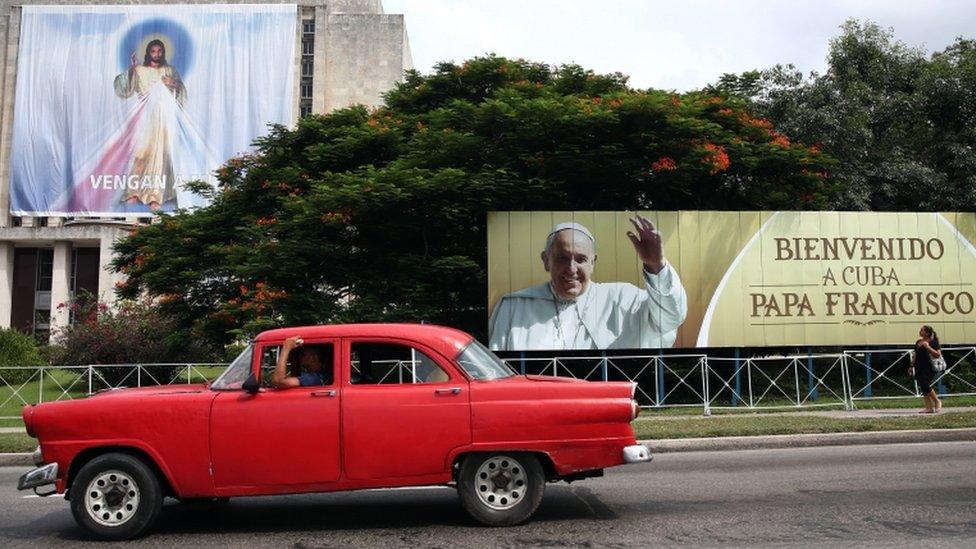
The Pope's visit has sparked huge interest in Cuba
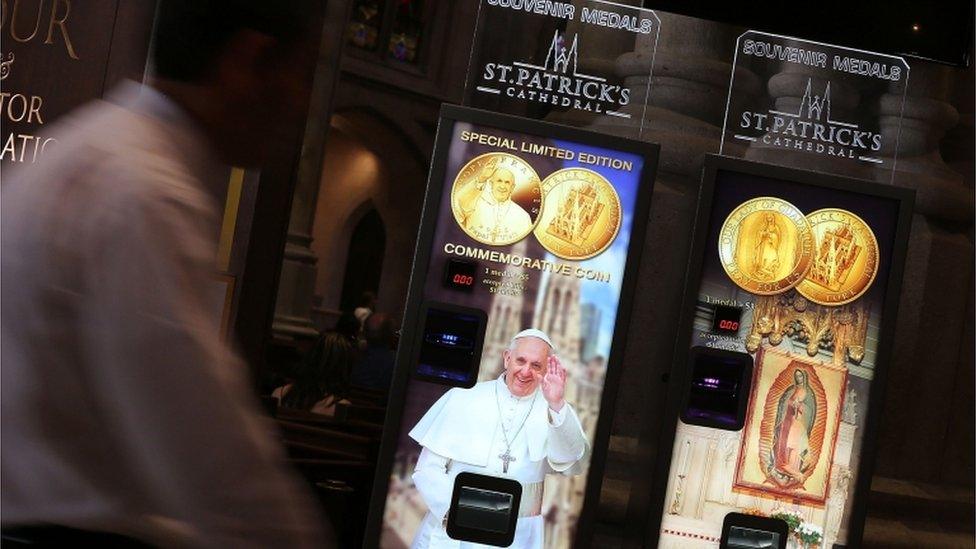
.... and in the US
Under his predecessors, Catholic identity was tied up with opposition to abortion, a conservative position on marriage and same-sex relationships, but Pope Francis is changing the emphasis from adherence to doctrine to what Catholics do to help the poor, immigrants and the dispossessed.
Paul Vallely is author of Pope Francis: Untying the Knots - subtitled The Struggle for the Soul of Catholicism.
He said: "Francis is not a liberal. He's a very complicated character.
"He's got some liberal tendencies, but he's got some conservative tendencies too. He wants to shift the focus from sex to poverty."
There will be many opportunities on this nine-day trip for Pope Francis to challenge both the faithful and the political classes in Cuba and America.
He is due to make 26 speeches - eight of them in Cuba and 18 in the US - and as the Vatican knows all too well, he often veers off-script to deliver his pastoral wisdom in the down-to-earth language of a parish priest.
Off-the-cuff remarks
The majority of his speeches will be in Spanish, a tongue in which he is particularly prone to making off-the-cuff remarks, rather than in his more halting English, although that is the language he will use to make his addresses at the White House and Congress and his prayer at the 9/11 memorial.
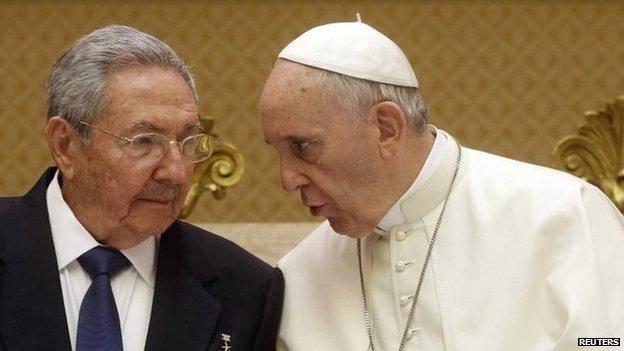
Raul Castro stopped in Rome to meet the Pope on his way back from Moscow
He is a Pope who has spoken of the need for priests to be "shepherds, living with the smell of their sheep",, external something he has put into practice in his own Papacy, while his exhortations to consume less and do more for the poor have irritated some on the American right, especially his remarks that the unbridled pursuit of money is the "dung of the devil"., external
On that, he may find an ally in the Castro family, with his first stop in Cuba likely to see a meeting with Fidel Castro in Havana, if he is well enough, as well as President Raul Castro.
Although Cuba remains an avowedly agnostic state, its president got on so well with Pope Francis on his visit to the Vatican earlier this year that he emerged with a surprising statement.
"If the Pope keeps going the way he's going, I'll go back to praying and go back to the Church, and I'm not joking," President Castro said, external after their talks.
He added: "When the Pope goes to Cuba in September, I promise to go to all his masses and with satisfaction."

Pope Francis's foreign visits:
Brazil (22 to 29 July 2013)
Israel, Jordan and Palestinian territories (May 2014)
South Korea (August 2014)
Albania (September 2014)
France (November 2014)
Turkey (November 2014)
Sri Lanka and Philippines (January 2015)
Bosnia and Herzegovina (June 2015)
Bolivia, Ecuador and Paraguay (July 2015)
Cuba and US (September 2015)
Kenya, Uganda and Central African Republic (November 2015)

- Published11 September 2015
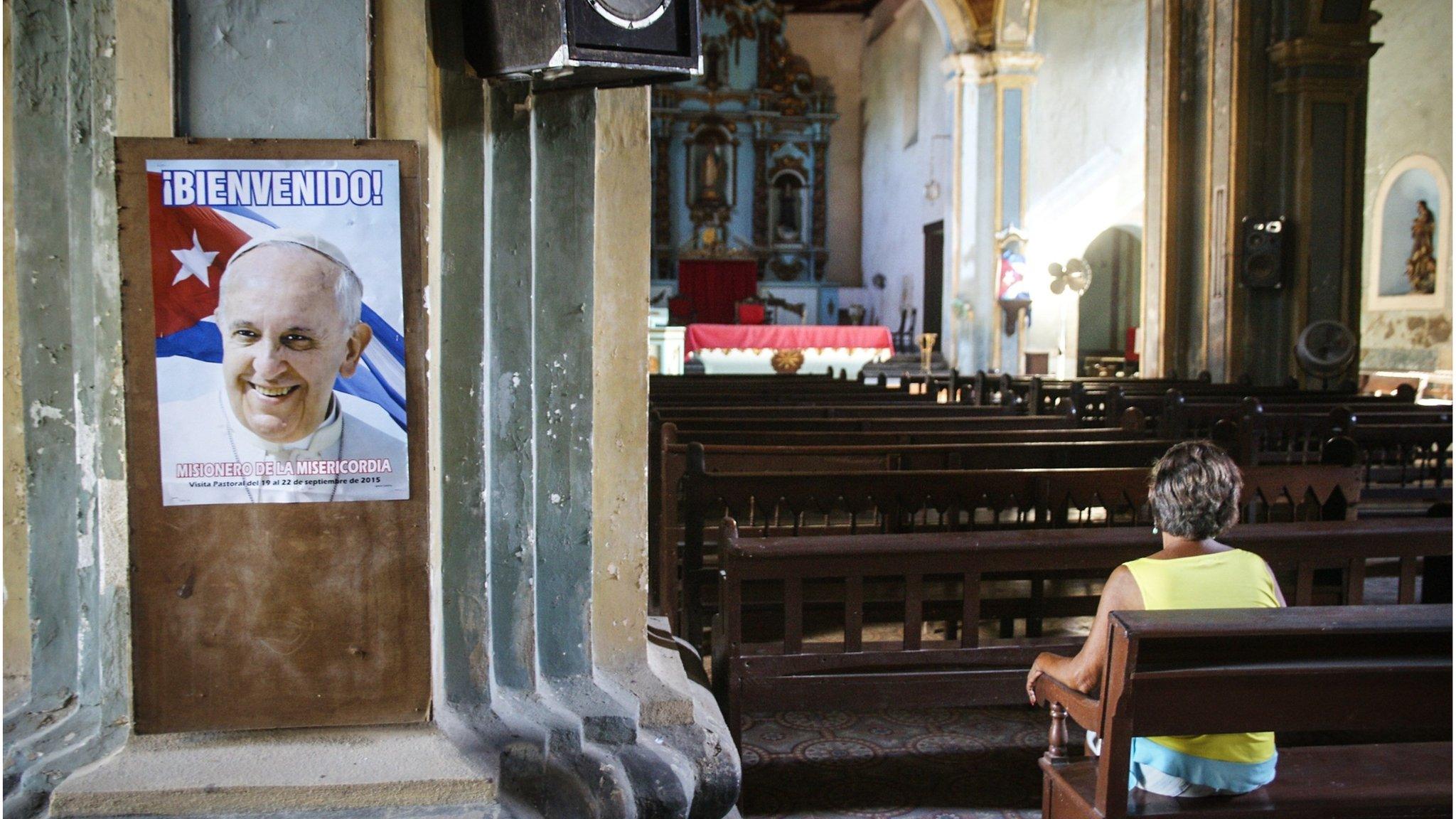
- Published10 May 2015
